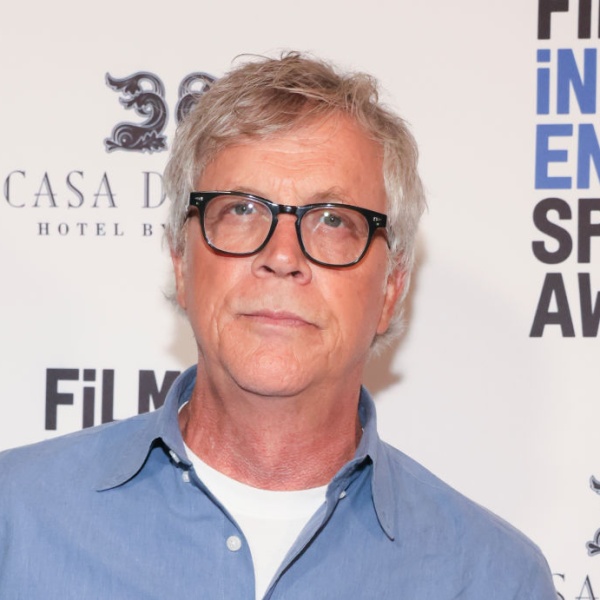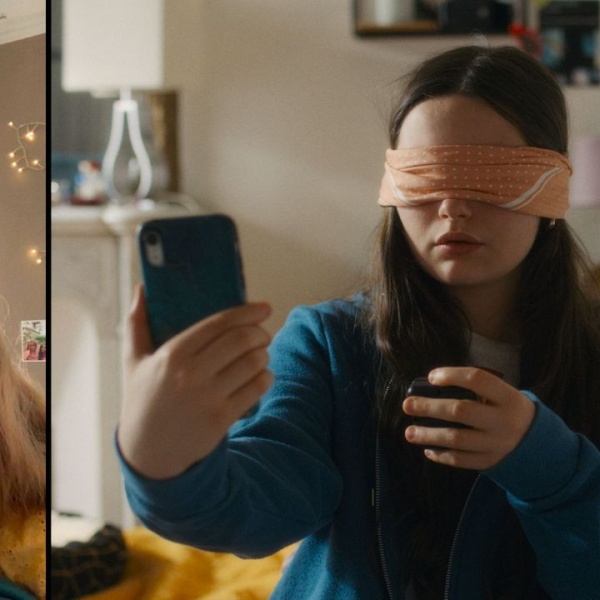
Listen, we understand that sometimes in order to get some attention, indie films need glib comparisons and word out of Sundance this year was that Dee Rees‘ “Pariah” was this year’s “Precious.” However, not only is “Pariah” nothing like “Precious”, it is so much better and so much more rewarding than anything Lee Daniels‘ “achieved” with his hysterical, exploitative, ghetto soap opera porno. Real in ways few movies ever are, “Pariah” mixes the coming out and coming-of-age story and pitches it against the backdrop of an African-American family adapting to the shifting cultural sexual tides. The result is a film that is warm and raw, sometimes both at the same time, and is easily one our favorites of the year.
While her best friend Laura (Pernell Walker) is out and proud, for Alike (Adepero Oduye) her homosexuality — a secret to her parents but not really anybody else — is also tinged with the unease of being a virgin. She desperately wants to find a girl to love but never feels quite at home at the lesbian bar she frequents with Laura to make her move. Adding to her inability to develop a relationship is her overbearing and ever watchful mother Audrey (Kim Wayans). Alike can never go in and out of the house without Audrey bombarding her with questions, complaints and advice and while she’s trying to spread her wings, they are clipped at every opportunity when she walks through the door. And though Audrey has her suspicions, she leaves the inquiry to her husband Arthur (Charles Parnell), a New York City police officer who is hardly ever at home. It’s a smart play for someone who wishes to remain in denial for something they know in their hearts is true.

Alike’s first real attempt to woo a girl from school involves an ill-advised purchase of a strap-on dildo and ends poorly. The bar scene in general is just something that Alike doesn’t groove with as easily as Laura and a lifestyle more in tune with her more artistic leanings — she is a budding young writer and poet — is introduced to her from the most unlikely person. At first Alike wants nothing to do with Bina (Aasha Davis), the daughter of Aubrey’s church friend who is forced upon her Alike as a companion for her morning walk to school, and as a wedge to keep Laura away who she perceives to be a bad influence. And though their relationship is icy at first, soon the two realize they have a lot more in common, and bonding thanks to a shared passion for underground hip hop, they begin spending much more time together, and Alike suddenly sees possibilities and positivity where she never saw it before.
While the territory might be familiar “Pariah” is refreshing in its authentic feeling and Rees refusal to go down similar paths other films have gone before. For one, the characters we meet in the movie come from a variety of economic backgrounds. Alike’s family are middle-to-upper class, living in a beautiful brownstone, while Bina’s folks might be a step lower and Laura, living with her sister, occupies the bottom of the rung. Each of their situations add a texture, but moreover, present a much more full bodied portrait of Alike’s surroundings. In short, this is a New York story with all of that city’s mix of people on different rungs of the ladder. And this extends to the cultural elements as well, as Rees takes viewers from the thumping, pulsating world of the lesbian club from the first half of the film, to a completely different indie rock scene later in the picture. Again, while the plot concerns a very specific arc and theme, Reese enlivens it with fully developed, realistic social settings that give the picture an almost documentary feel.
And with Rees thoughtfully constructing the architecture for this film, it’s really up to the cast to deliver, and do they ever. Oduye is nothing short of a revelation. She starred in the short film Rees directed that served as the foundation for this feature debut, and it’s clear she knows this character inside and out. From the physicality that swings from the swagger of a young woman on the prowl to a daughter who remains closeted, Oduye knows ever nuance of what it means to be half in hiding. And in those rare moments when she smiles, it lights up a room and nearly shatters your heart with the directness and nakedness of emotion. The supporting players shine as well, particularly Charles Parnell as Arthur, a proud father divided between protecting his pride from the barbs of his barbershop buddies to being there for his daughter as her mother continues to drift away.
This is no after school special. “Pariah” closes on a bittersweet note and one that sees Alike transformed, slowly establishing herself in a community of those not just bound by sexual identity, but by shared pain and hope. Dee Rees finds both of those elements in “Pariah,” a film that relates the pangs of first love, the desirous ache of adolescent sexuality and the excitement of not just discovering yourself but finding those kindred spirits with who you can share your life, with a sensitivity that is universal. [A-]





